Idea by
Marc Lee
http://marclee.io/en/10-000-moving-cities-same-but-different-vr/
Call for ideas 2018
10.000 Moving Cities
10.000 Moving Cities
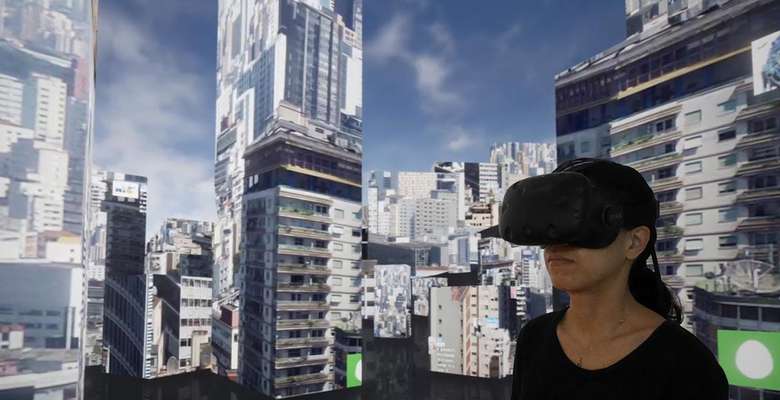
10.000 Moving Cities – Same but Different deals with urbanization and globalization in the digital age. The user moves through visual worlds posted publicly by others on social networks such as YouTube, Flickr or Twitter. Here these personal impressions are streamed in real time like windows to our changing world. The viewer participates in the social movements of our time and makes a virtual journey into constantly new image and sound collages in which one experiences local, cultural and linguistic differences and similarities. In virtual space, this information is visualized on cubes that rise at different heights to become a kind of skyline. The work deals with how our cities are continuously changing and increasingly resemble one. This results in more and more non-places/places of lost places in the sense of Marc Augé’s book and essay Non-Places, which could exist all over the world without any true local identity (such as motorways, shopping malls, hotel rooms or airports).
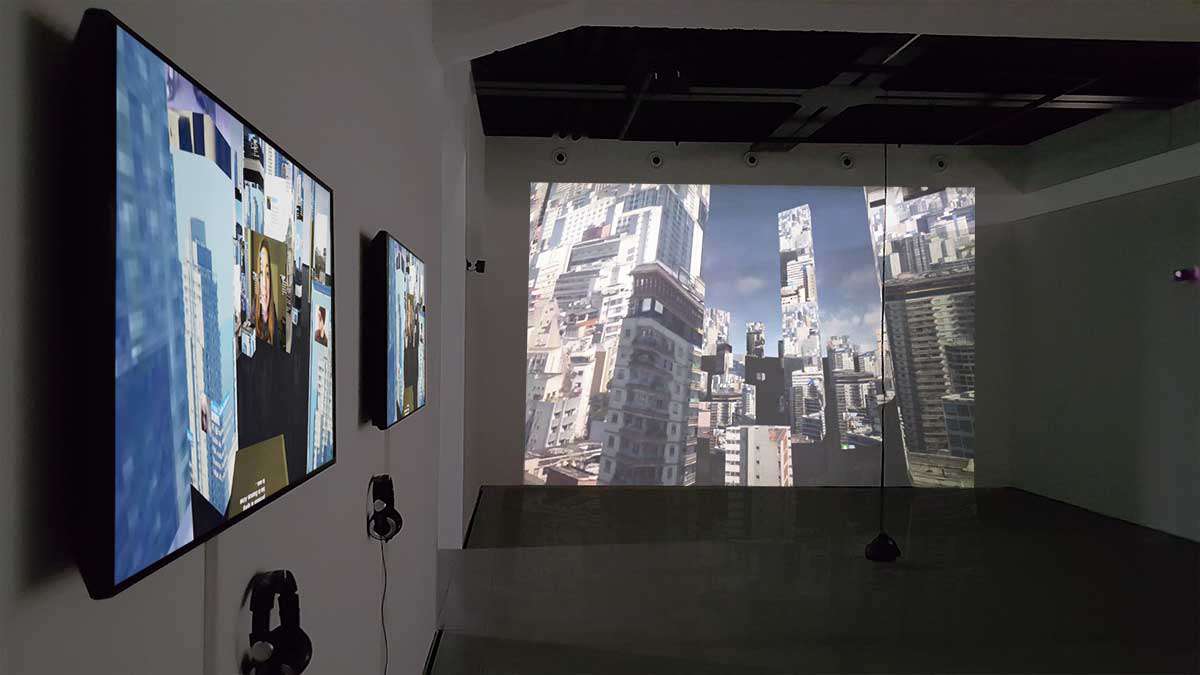
The Unframed World, HeK, Basel, Switzerland
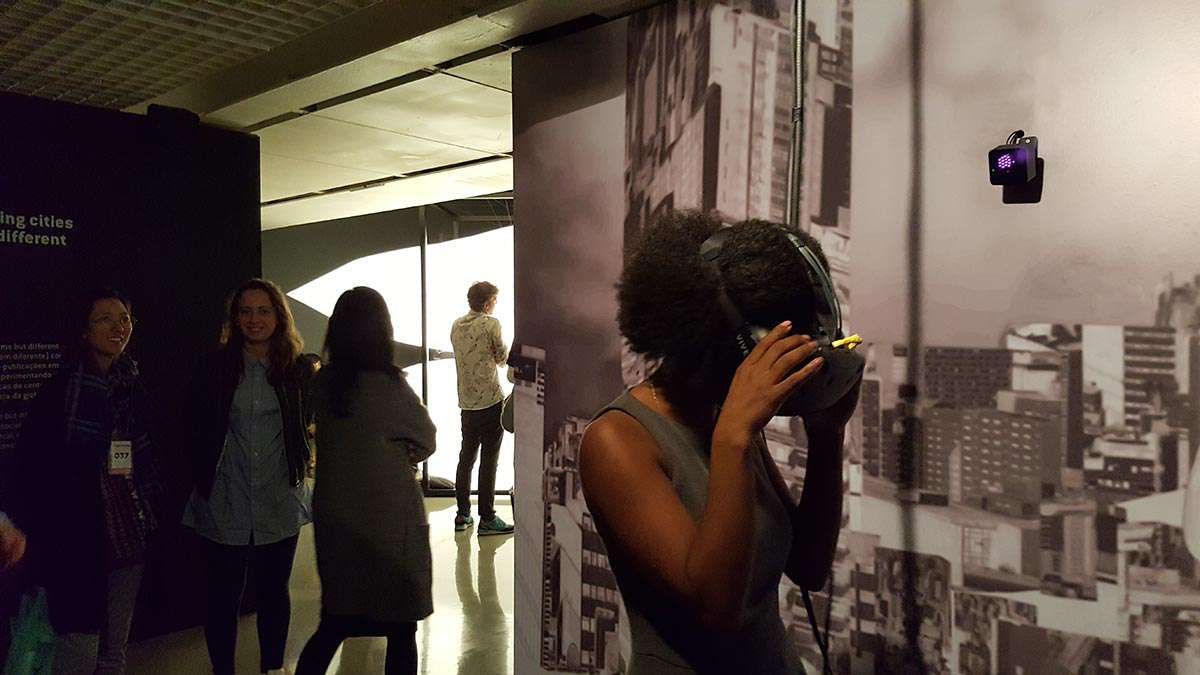
FILE, Electronic Language international Festival SESI Gallery, São Paulo, Brazil
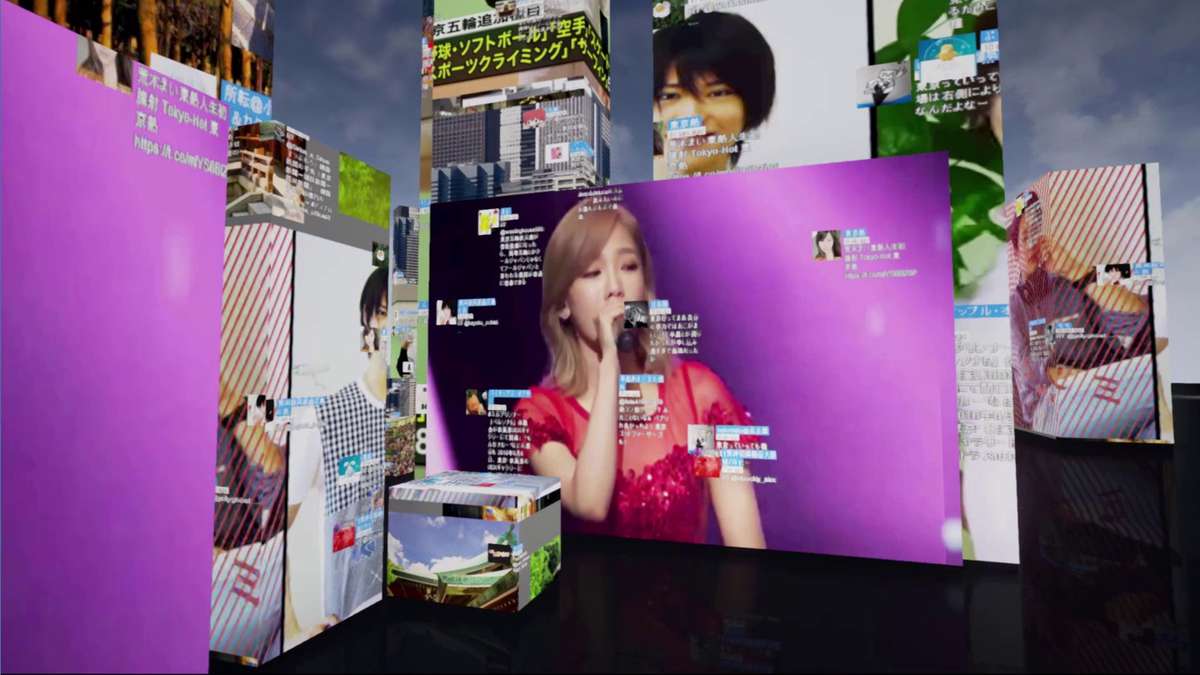
Screenshot Tokyo

Screenshot Bangkok
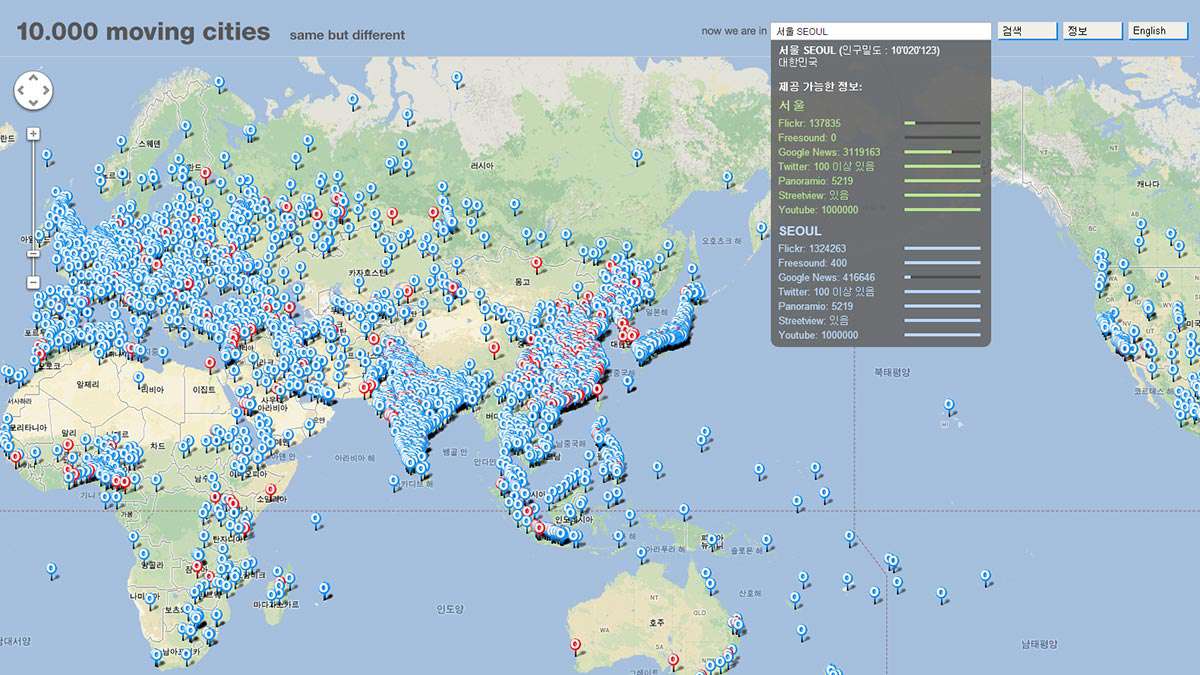
Interface - Users can select any city, using a digital interface. About the chosen city, the internet is searched in real time for latest text, image, video and sound informations.
10.000 Moving Cities
10.000 Moving Cities

10.000 Moving Cities – Same but Different deals with urbanization and globalization in the digital age. The user moves through visual worlds posted publicly by others on social networks such as YouTube, Flickr or Twitter. Here these personal impressions are streamed in real time like windows to our changing world. The viewer participates in the social movements of our time and makes a virtual journey into constantly new image and sound collages in which one experiences local, cultural and linguistic differences and similarities. In virtual space, this information is visualized on cubes that rise at different heights to become a kind of skyline. The work deals with how our cities are continuously changing and increasingly resemble one. This results in more and more non-places/places of lost places in the sense of Marc Augé’s book and essay Non-Places, which could exist all over the world without any true local identity (such as motorways, shopping malls, hotel rooms or airports).
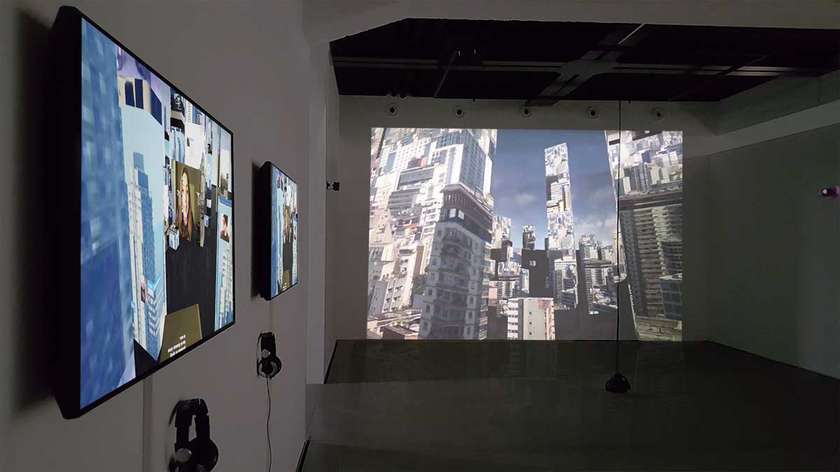
The Unframed World, HeK, Basel, Switzerland
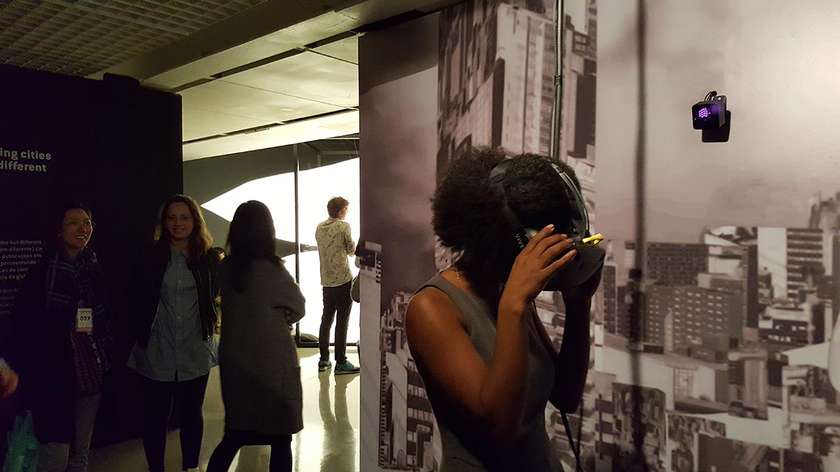
FILE, Electronic Language international Festival SESI Gallery, São Paulo, Brazil
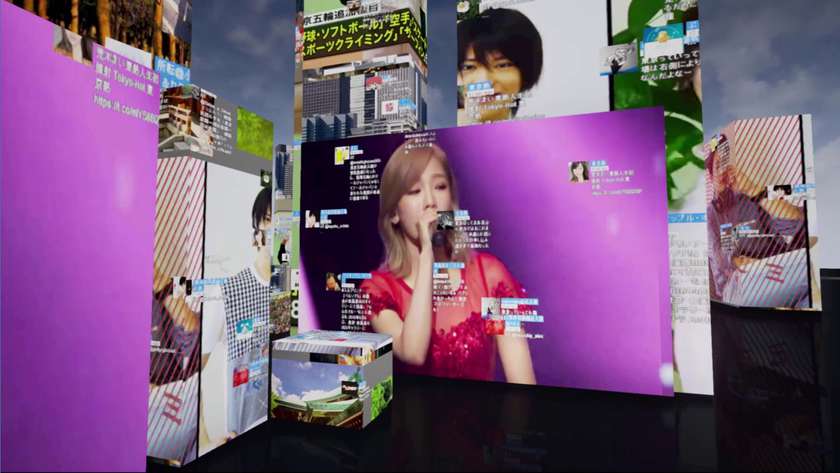
Screenshot Tokyo
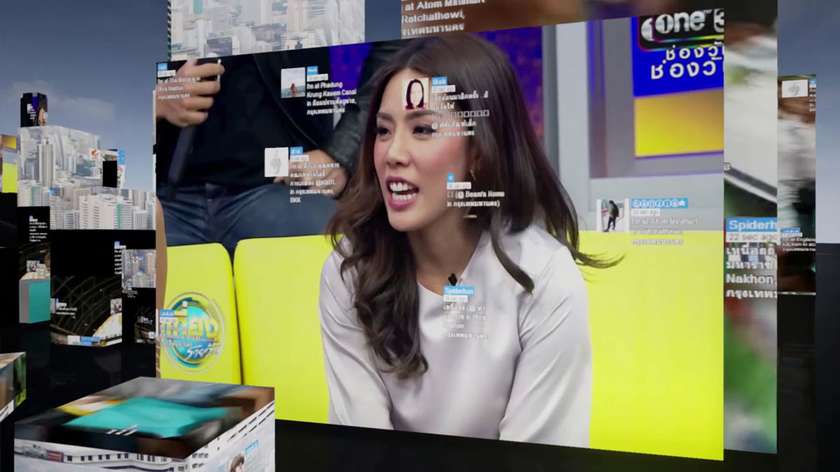
Screenshot Bangkok
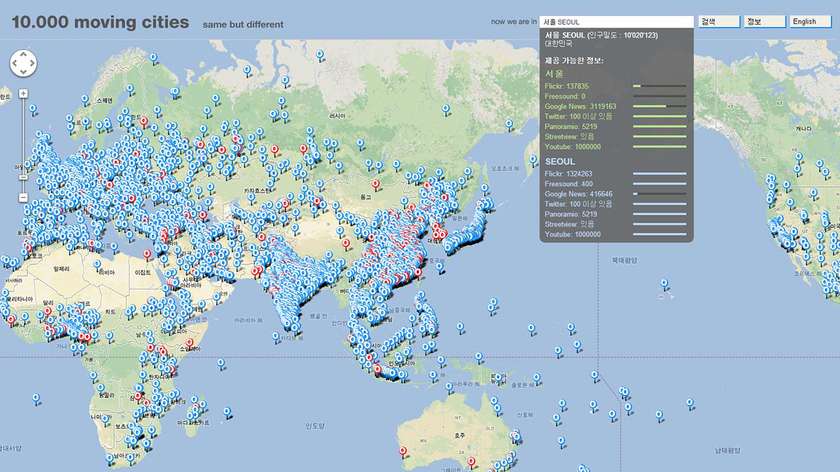
Interface - Users can select any city, using a digital interface. About the chosen city, the internet is searched in real time for latest text, image, video and sound informations.